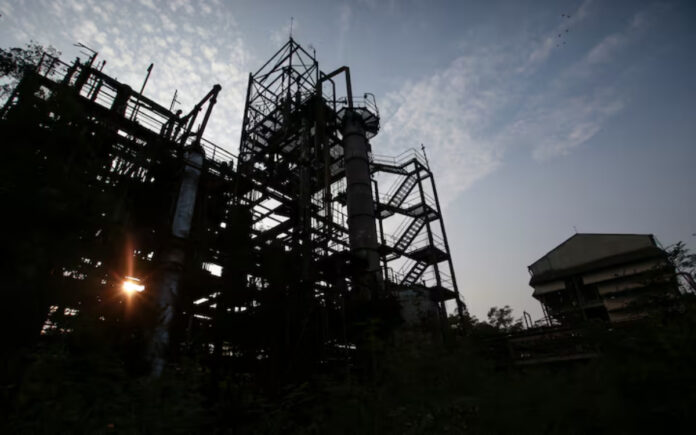Bhopal: Indian authorities announced on Thursday that they have successfully completed the transportation of toxic waste from the site of the 1984 Bhopal gas leak disaster. The waste, which has been sitting for nearly four decades, will be incinerated at a disposal facility where the process is expected to take between three to nine months.
The Bhopal gas tragedy, one of the world’s worst industrial disasters, occurred on the night of December 2-3, 1984, when a leak of methyl isocyanate gas from a pesticide plant owned by American Union Carbide Corporation poisoned over half a million people. The disaster claimed the lives of more than 5,000 people in the city of Bhopal, located in the Indian state of Madhya Pradesh. Thousands more suffered long-term health effects.
Indian authorities said they had completed removing toxic waste from the site of the 1984 Bhopal gas leak disaster, where a leak from a Union Carbide pesticide factory poisoned over half a million people https://t.co/Mkxf3d626w pic.twitter.com/5aqHTvy1Sa
— Reuters (@Reuters) January 3, 2025
On Thursday, twelve leak-free containers containing 337 metric tons of toxic waste were transported to the Pithampur plant, located 230 kilometers (142 miles) away from Bhopal. The transfer was carried out under heavy security, according to Swatantra Kumar Singh, director of the Bhopal gas tragedy relief and rehabilitation department. Singh informed Reuters that the transportation process was a significant step forward in addressing the aftermath of the tragedy.
A trial run for the incineration process, involving 10 metric tons of waste, was conducted in 2015. The incineration of the remaining 337 metric tons is expected to be completed within the next few months. The state government confirmed that the incineration process will meet the emission standards set by India’s federal pollution control agency.
Also Read | Apple to Pay $95 Million After Siri Accused of Recording Private Chats
Singh emphasized that the disposal process is environmentally safe and will be carried out in a way that minimizes harm to the local ecosystem. He reassured the public that the toxic waste would be handled in accordance with national environmental standards.
However, concerns over the long-term environmental impact remain. Rachna Dhingra, a Bhopal-based activist who has worked with the survivors of the tragedy, expressed doubts about the disposal method. Dhingra pointed out that the solid waste remaining after incineration will be buried in a landfill, which could potentially lead to water contamination and other environmental risks.
Also Read | China’s Luxury Shopping Paradise Faces Decline in Hainan Duty-Free Spending
“Why is the polluter Union Carbide and Dow Chemical not being compelled to clean up its toxic waste in Bhopal?” Dhingra questioned, highlighting the ongoing concerns among local residents and activists about the role of the corporations responsible for the disaster.
The Union Carbide plant, built in 1969, was once considered a symbol of industrialization in India. It created thousands of jobs for the poor while supplying affordable pesticides to farmers. However, the plant’s legacy has been forever marred by the gas leak disaster, and its current owner, Dow Chemical, has faced criticism for its failure to fully address the ongoing environmental and health consequences of the tragedy.



